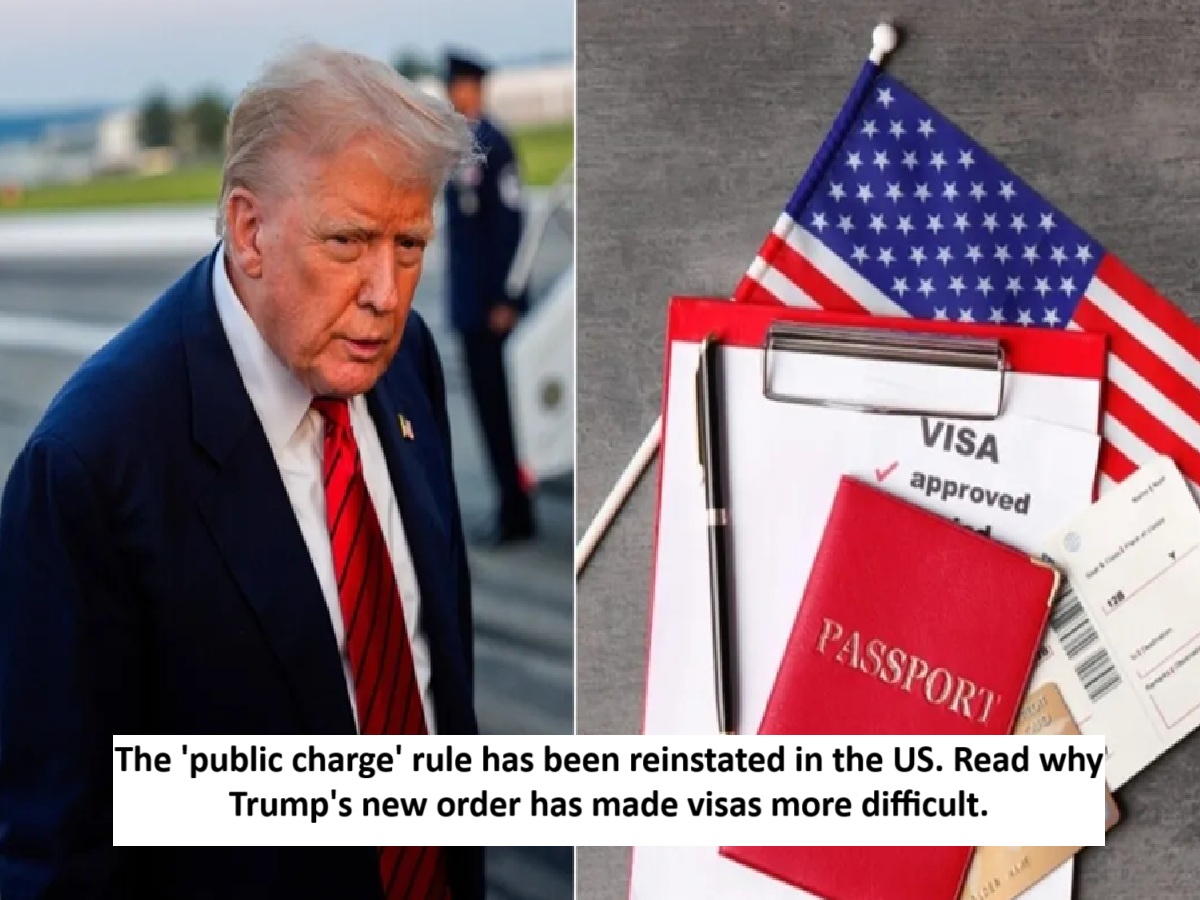
News Topical, Digital Desk : The Trump administration has issued new guidelines that could make it more difficult for foreign nationals with certain health conditions to obtain US visas. The US State Department has directed embassies around the world to consider visa applicants' health status and ability to afford treatment.
Under the new policy, visa officers will determine whether a person would become dependent on government assistance. It lists several medical conditions, including heart disease, respiratory diseases, cancer, diabetes, metabolic and neurological disorders, and mental health issues.
Obesity is also included in this
Even obesity is included, as it's linked to conditions like blood pressure, asthma, and spleen anemia. Officials are asked to consider whether the applicant or their family is likely to require long-term and expensive treatment and whether they will be dependent on government programs like Medicaid .
It is not yet clear whether this rule will also apply to temporary visa holders such as tourist ( B-1/B-2) or student visas ( F-1) . While the guidelines apply to all visa categories, it is believed to have a greater impact on permanent settlers (green card applicants). Currently, tourist visa holders must prove in advance that they have sufficient funds for travel and do not intend to settle in the US.
Treatment can be expensive
Medical tests have previously been required for visas or green cards in the US, particularly for infectious diseases like tuberculosis and vaccination records. The new development is that the government has also included chronic and non-infectious diseases in the risk category. This means that officials will now assess how expensive future treatment for a particular illness may be.
Critics say the decision is highly subjective because visa officers are not medical experts. " It's troubling because the officers themselves are not doctors and can make decisions based on their own judgment, " said Charles Wheeler, a lawyer with the Catholic Legal Immigration Network.
“ This rule encourages officials to speculate on applicants' potential medical costs, which could lead to inconsistent results,” said Sophia Genovese, an immigration lawyer at Georgetown University.
Withdrawal of ' public charge' rule
This new policy is reminiscent of the Trump administration's old "public charge" rule, which targeted people who had received or were likely to receive government assistance. The Biden administration eliminated that rule in 2022, but the Trump administration has now moved to reinstate it, linking it to health and economic conditions.
A US State Department official said each case would be evaluated individually and that a visa would not be denied simply because of a medical condition, but whether the person could afford the treatment during their lifetime.
Why is this decision important?
This policy could particularly impact the elderly or those with chronic illnesses. Around 10% of the global population suffers from diabetes, and approximately 40% of people in the United States are obese, meaning it could impact a wide range of populations.
Read More: B-1 bombers struck deep inside Iran to neutralize missile impact, CENTCOM confirms
--Advertisement--

 Share
Share



